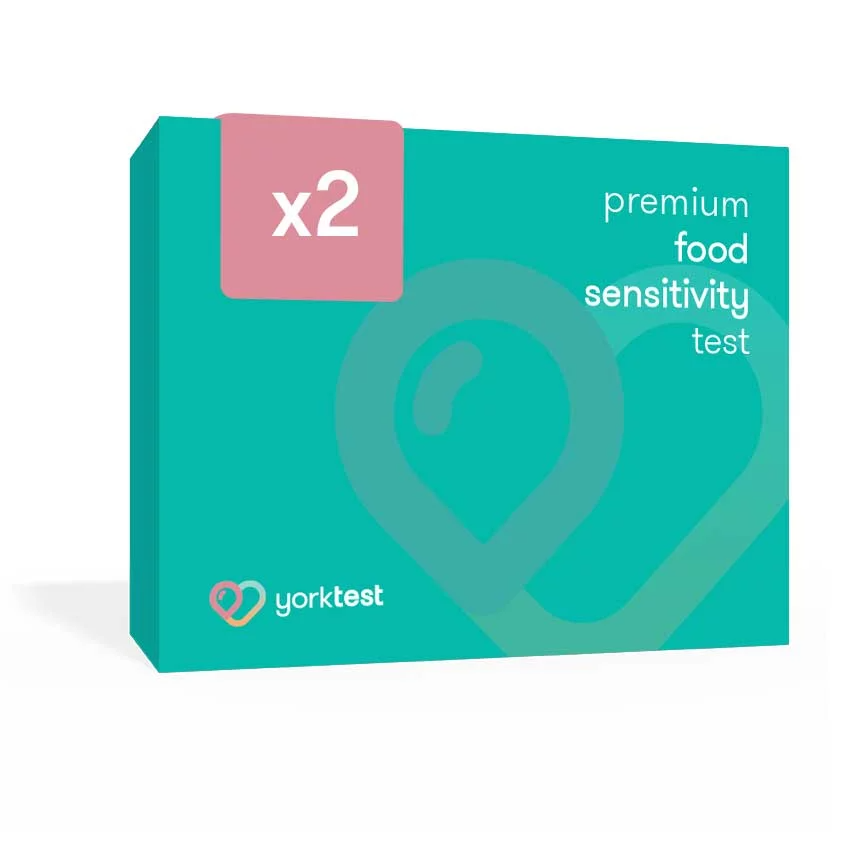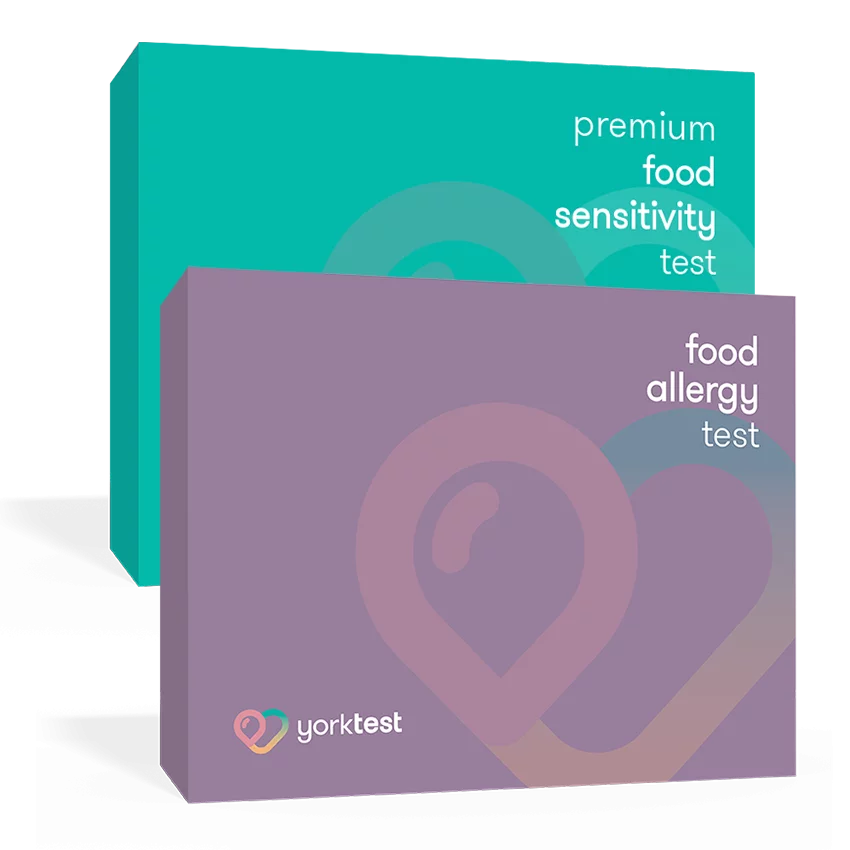
Cucumber Allergy & Intolerance: Symptoms, Signs and Testing
- Symptoms of Cucumber Allergy
- Mild to Moderate Symptoms
- Potentially Severe Symptoms
- Symptoms of Cucumber Intolerance
- Digestive Issues
- General Intolerance Symptoms
- How Common is a Cucumber Allergy?
- How Does Cucumber Allergy Affect Your Stomach?
- Foods To Avoid With a Cucumber Allergy or Intolerance
- Cucumber Allergy Treatment
- Mild Reaction
- Severe Reactions
- Cucumber Alternatives
- Testing for Cucumber Allergy and Intolerance
Cucumber is widely considered a healthy food. It’s frequently enjoyed as a snack with foods like hummus, or as part of a sandwich or even a burger. However, cucumbers aren’t great for everyone.
In recent years, cucumber allergies and intolerances have become more common. While not widespread, suffering from this allergy or intolerance can be very unpleasant. Symptoms range from a mildly annoyingly itchy throat to painful stomach issues.
If you think you may have a cucumber allergy or intolerance, in this guide, we help explain signs to look out for, potential symptoms, treatments, and more.
Symptoms of Cucumber Allergy
Symptoms of a cucumber allergy can range from mild to moderate and even severe in rare cases. While severe reactions, known as anaphylaxis, are rare, they can cause breathing difficulties, dizziness, and tightening of your throat. If this does happen, be sure to contact emergency services the second you see signs of swelling lips, mouth or throat, and difficulty breathing, wheezing or fainting.
Cucumber allergy symptoms can include:
Mild to Moderate Symptoms
- Hives and/or Rashes
- Sneezing, runny, or stuffy nose
- Itching, redness, or mild swelling of the lips, mouth, throat and tongue
- Dizziness and lightheadedness
- Watery and itchy eyes.Â
Potentially Severe Symptoms
- Swelling of the throat, tongue, lips and face (oral allergy syndrome)
- Coughing, wheezing, or difficulty breathingÂ
- Nausea, vomiting, abdominal pain or diarrhoea
- Contact dermatitis
Symptoms of Cucumber Intolerance
Symptoms of cucumber intolerance are rarely similar to symptoms of a cucumber allergy, such as an itchy or tingling throat, mild swelling, hives, and even anaphylaxis on rare and severe occasions. Cucumber intolerance symptoms typically include:
Digestive Issues
Common digestive symptoms of cucumber intolerance can include gas and bloating, diarrhoea, abdominal discomfort or cramping, and nausea or vomiting. These reactions typically occur when your body struggles to break down certain compounds found in cucumbers, leading to irritation within your digestive tract.
General Intolerance Symptoms
Beyond the gut, cucumber intolerance can also trigger a range of wider symptoms such as migraines, fatigue, joint or muscle pain, and a runny or blocked nose. These may result from your body’s immune or inflammatory response to specific elements within the cucumber, and can vary in intensity from person to person.
How Common is a Cucumber Allergy?
Generally speaking, cucumber allergies and intolerances are not very common, but they can occur and are often linked to oral allergy syndrome or cross-reactivity with other plants, such as latex. If you react to cucumbers, you may also have sensitivities towards other members of the gourd family, such as melons and zucchini, as well as pollens, particularly ragweed pollen.
How Does Cucumber Allergy Affect Your Stomach?
A cucumber allergy can cause stomach symptoms such as abdominal pain, nausea, vomiting, and diarrhoea, triggered by an immune reaction to cucumber proteins. In some cases, this relates to oral allergy syndrome (OAS), where symptoms are usually limited to the mouth and throat, but can extend to the stomach in delayed reactions or when compounds like salicylates are involved.
Cucumbers also contain fibre and natural chemicals such as cucurbitacin, which may contribute to bloating or digestive upset, especially if you have an existing sensitivity or digestive issues.
Foods To Avoid With a Cucumber Allergy or Intolerance
While it may seem obvious, if you have a cucumber allergy or intolerance, you should avoid cucumbers. However, there are other foods you should potentially avoid too.
Food with similar proteins (especially the other members of the Cucurbitaceae family like melons, zucchini, and pumpkin) should be avoided. This is due to cross-reactivity.
If you suffer from a latex allergy, you should be at least cautious when it comes to cucumbers and other related foods like bananas, kiwis, chestnuts, and papaya.Â
If your allergy is linked in some way to ragweed pollen, you may also need to avoid members of the ragweed family like bananas, melon or sunflower seeds.
Cucumber Allergy Treatment
When it comes to treatment for cucumber allergies, there is no one solution. The severity of your reaction will greatly influence your level of treatment.
Mild Reaction
- Stop eating cucumbers and remove them from your diet entirely.
- Take antihistamines if your symptoms are particularly bothersome.
- Monitor symptoms accordingly; itching and tingling throats should usually subside within 30-60 minutes.
Severe Reactions
- Seek immediate medical attention if a severe allergic reaction occurs.
- Use an adrenaline auto-injector (EpiPen) immediately in the event of a severe reaction.
- Don’t rely on other medications, such as an asthma inhaler or antihistamines; receiving medical attention is the only option if you want to be safe.Â
Cucumber Alternatives
If you need to avoid cucumbers due to an allergy or intolerance, there are still plenty of refreshing alternatives to enjoy. However, be cautious with other foods from the Cucurbitaceae family, such as melons, courgettes (zucchini), and pumpkins, as these can sometimes cause similar reactions due to cross-reactivity.
Safer substitutes that offer a similar crunch or freshness include celery, fennel, cabbage, or iceberg lettuce. Green apples or pears can also add a crisp, hydrating element to salads and sandwiches.
When trying alternatives, introduce them slowly and monitor any symptoms to ensure they’re well tolerated.
Testing for Cucumber Allergy and Intolerance
If you suspect cucumbers are causing unwanted symptoms, our Premium Food Intolerance Test can help provide clarity. This laboratory-analysed test measures your IgG antibody responses to over 200 foods and drinks, including cucumber, to help identify potential intolerances that may be affecting your wellbeing.
Using a simple finger-prick blood sample, your results are delivered within just a few days and presented in an easy-to-read format. You’ll also receive a 30-minute consultation with one of our nutritional therapists, who can help you interpret your results and make informed dietary changes with confidence.
Discover whether cucumber, or other foods, could be behind your symptoms and take the first step towards feeling your best. At YorkTest, we aim to ensure you live the best life possible. As such, we have a plethora of tests ready to optimize your health.Â







